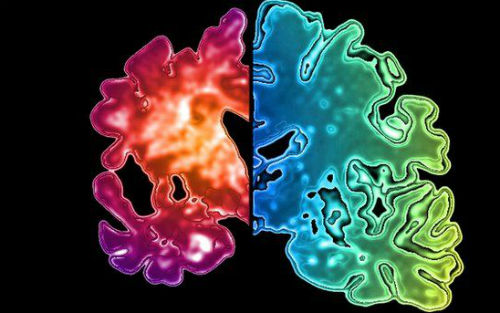BBC:肥胖竟能降低患痴呆症风险!
BBC:肥胖竟能降低患痴呆症风险!
| 导读 | 导读:近日,发表在《Lancet Diabetes & Endocrinology》杂志上的一项研究中,科学家们分析近200万名中年的英国人发现,体重过轻的人患痴呆症的风险最高。从另一角度说,超重能够降低患痴呆症的风险(18%)。研究人员对此结论也非常惊讶,这与很多先前的研究结论相悖。 |

痴呆大脑中损失的组织
近日,发表在《Lancet Diabetes & Endocrinology》杂志上的一项研究中,科学家们分析近200万名中年的英国人发现,体重过轻(BMI<20 kg/m2)的人患痴呆症的风险最高。从另一角度说,超重能够降低患痴呆症的风险(18%)。研究人员对此结论也非常惊讶,这与很多先前的研究结论相悖。
痴呆症是最紧迫的现代健康问题之一 ,预计到2050年患者数量将达1.35亿。目前还没有治愈的方式,最主要的减少患痴呆症的建议就是管理生活方式,比如不吸烟、多运动、健康饮食等。
在这项研究中,研究团队跟踪分析了1958191名平均年龄为55岁的受试者长达20年,结果表明,与健康体重的受试者比,体重过轻的人患痴呆症的风险会增加39%,而超重(overweight)的人患痴呆症的风险会降低18%,肥胖(obese)的人风险会降低24%。
领导该研究的Nawab Qizilbash博士说:“虽然我们的研究结论与先前很多结论相悖,但是我们的研究在规模和精度上远远的超出他们。不过,我们的结论并不表示超重或肥胖就是好的。心脏病、中风、糖尿病、癌症和一些其它疾病也与更大腰围有关。”
英国老年痴呆症研究中心的Simon Ridley博士说:“这项研究提出了体重与痴呆症风险之间的关系,不过还需要进一步的研究对这个结论进行解释。”
推荐阅读
Being overweight 'reduces dementia risk'
Background Dementia and obesity are increasingly important public health issues. Obesity in middle age has been proposed to lead to dementia in old age. We investigated the association between BMI and risk of dementia. Methods For this retrospective cohort study, we used a cohort of 1 958 191 individuals derived from the United Kingdom Clinical Practice Research Datalink (CPRD) which included people aged 40 years or older in whom BMI was recorded between 1992 and 2007. Follow-up was until the practice's final data collection date, patient death or transfer out of practice, or first record of dementia (whichever occurred first). People with a previous record of dementia were excluded. We used Poisson regression to calculate incidence rates of dementia for each BMI category. Findings Our cohort of 1 958 191 people from UK general practices had a median age at baseline of 55 years (IQR 45–66) and a median follow-up of 9·1 years (IQR 6·3–12·6). Dementia occurred in 45 507 people, at a rate of 2·4 cases per 1000 person-years. Compared with people of a healthy weight, underweight people (BMI <20 kg/m2) had a 34% higher (95% CI 29–38) risk of dementia. Furthermore, the incidence of dementia continued to fall for every increasing BMI category, with very obese people (BMI >40 kg/m2) having a 29% lower (95% CI 22–36) dementia risk than people of a healthy weight. These patterns persisted throughout two decades of follow-up, after adjustment for potential confounders and allowance for the J-shape association of BMI with mortality. Interpretation Being underweight in middle age and old age carries an increased risk of dementia over two decades. Our results contradict the hypothesis that obesity in middle age could increase the risk of dementia in old age. The reasons for and public health consequences of these findings need further investigation.
来自生物探索

